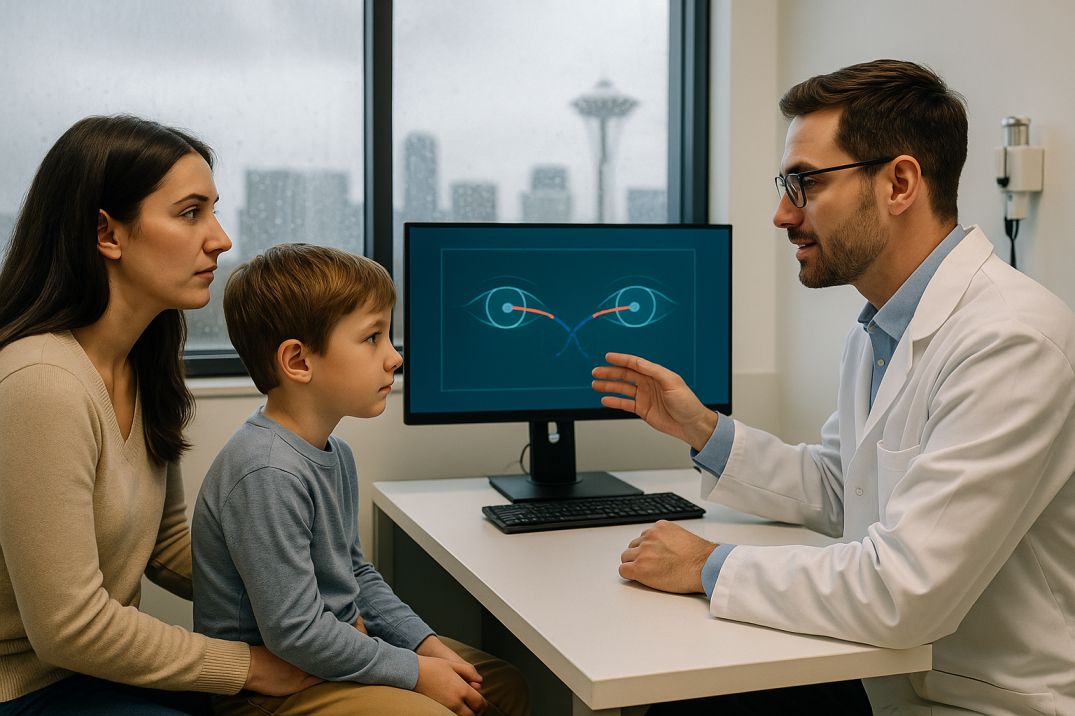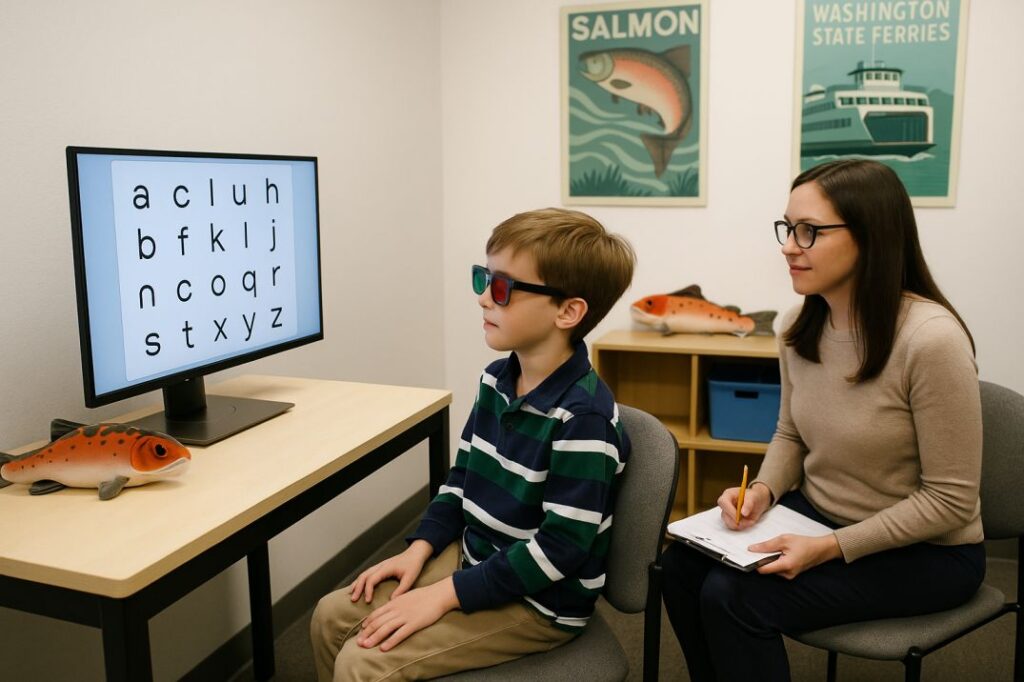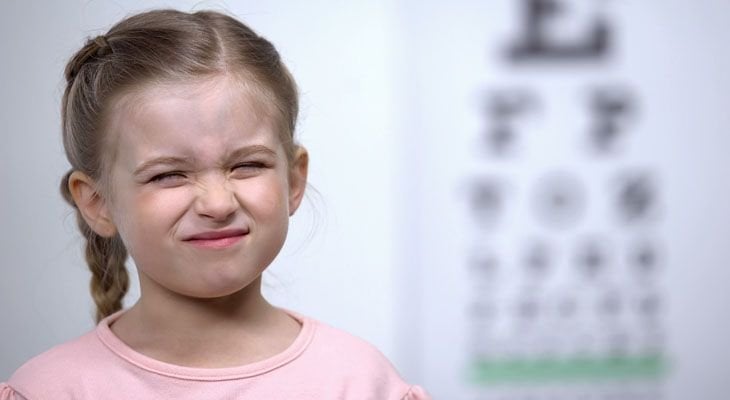Dyslexia Support in Seattle: What Parents Should Know
Key Takeaways: Understanding Dyslexia in Seattle
-
Dyslexia is a brain-based learning difference, not a vision problem—though 27% of Seattle cases show overlapping visual symptoms.
-
Early detection (ages 3–5) is critical. Watch for phonemic struggles, delayed speech, and persistent letter reversals beyond kindergarten.
-
Family history matters: Dyslexia is 60% heritable, so parental awareness is key to early intervention.
-
Vision screening plays a pivotal role at Cannon EyeCare in ruling out eye teaming and convergence issues that mimic dyslexia symptoms.
-
Seattle-specific co-management protocols include partnerships with Seattle Public Schools, Children’s Hospital, and neuropsychologists.
-
K–12 students may show gaps in sequencing, comprehension, and literacy, often misinterpreted as behavioral issues or lack of effort.
-
Adults in Seattle may face hidden challenges—like avoiding public reading or struggling with job training that involves math or verbal tasks.
-
Vision therapy helps improve visual processing, but does not treat core dyslexia, which requires educational support.
-
Seattle-tailored therapy methods include local icon-based drills (e.g., Sounders FC, MoPOP), Irlen filters, and UW-developed tracking apps for home use.
-
Integrated care is key—differentiating dyslexia from ADHD or vision disorders ensures targeted, effective treatment
Understanding Dyslexia: Seattle’s Learning Landscape
Core Definition
Brain-based processing difference affecting:
-
Speech sound recognition
-
Letter/sound connections
-
Reading fluency development
Key Insight:
Genetic neural wiring variation – not vision impairment, though Cannon EyeCare co-manages 27% of Seattle cases due to overlapping symptoms
Early Warning Signs: Seattle Parent Checklist
Observe before school entry (ages 3-5):
-
Phonemic Challenges:
-
Struggles with MOHAI storytime rhymes
-
Can’t clap syllables at Woodland Park Zoo
-
-
Delayed Milestones:
-
First words after 18 months
-
Limited vocabulary at Seattle Preschools
-
-
Family History:
-
60% heritability rate
-
Ask about relatives’ reading struggles
-
Seattle-Specific Red Flags:
-
Avoids the Sounders FC logo reading games
-
Frustration during Seattle Public Library visits
-
Letter reversals persist past kindergarten
Why Early Action Matters in Seattle
Educational Impact:
-
Reading gaps widen by 3rd grade (WA state assessments)
-
Math word problems become barriers
Co-Management Protocol:
-
Vision Screening at Cannon EyeCare (rule out convergence issues)
-
Psychoeducational Testing through Seattle Public Schools
-
Collaborative Plan with SLPs at Children’s Hospital
Cognitive Impact of Dyslexia: Seattle’s Learning Challenges
School-Age Indicators (K-12 Classrooms)
Teachers often first notice when:
-
Instructional Comprehension:
-
Fails to follow MOHAI field trip directions
-
Confuses Sounders FC game-day schedules
-
-
Sequencing Difficulties:
-
Can’t recall steps in Woodland Park science experiments
-
Struggles with salmon life cycle sequences
-
-
Literacy Gaps:
-
Reading 1+ grades below Seattle Public Schools benchmarks
-
Persistent letter reversals (b/d, p/q)
-
Adult Manifestations:
-
Time management struggles at Pike Place Market shifts
-
Avoids reading menus aloud in Capitol Hill restaurants
-
Misinterprets Seattle idioms (“The mountain is out”)
-
Math anxiety during the Port of Seattle job training
Dyslexia Diagnosis: Cannon EyeCare’s Collaborative Role
Vision’s Critical Screening Function
We investigate:
-
Acuity issues mimicking reading struggles
-
Eye teaming deficiencies affecting tracking
-
Convergence insufficiency exacerbates symptoms
Seattle Diagnostic Protocol:
-
Comprehensive Vision Exam:
-
Educational Partnership:
-
Coordinate with Seattle Children’s neuropsychologists
-
Share data with Bellevue School District specialists
-
-
Differential Diagnosis:
-
Rule out ADHD/visual processing disorders
-
Identify 18% of co-occurring vision issues (UW study data)
-
Dyslexia Treatment: Cannon EyeCare’s Seattle Approach
Vision Therapy’s Strategic Role
What we treat:
-
Eye teaming/tracking issues
-
Convergence insufficiency
What we don’t treat: -
Core dyslexia (requires educational specialists)
Evidence-Based Protocol:
“Vision therapy prepares neural pathways for learning but doesn’t cure dyslexia.”
– American Optometric Association
Seattle-Enhanced Therapy Techniques
Clinical Sessions (Belltown Office)
-
Prism Adaptation: Spatial reasoning with Space Needle models
-
-
Irlen filters for Amazon Kindle use
-
Seasonal affective disorder-combating lenses
-
-
Cognitive Exercises:
-
Sounders FC letter-tracking drills
-
Ferry schedule visual sequencing
-
Home Reinforcement:
-
15-min/day app-based eye tracking (UW-developed tools)
-
MoPOP visual memory games
FAQs
-
Dyslexia is a language-based learning disorder, not a vision problem. However, some people with dyslexia may also have unrelated vision issues





